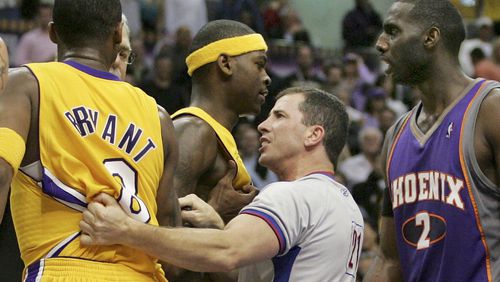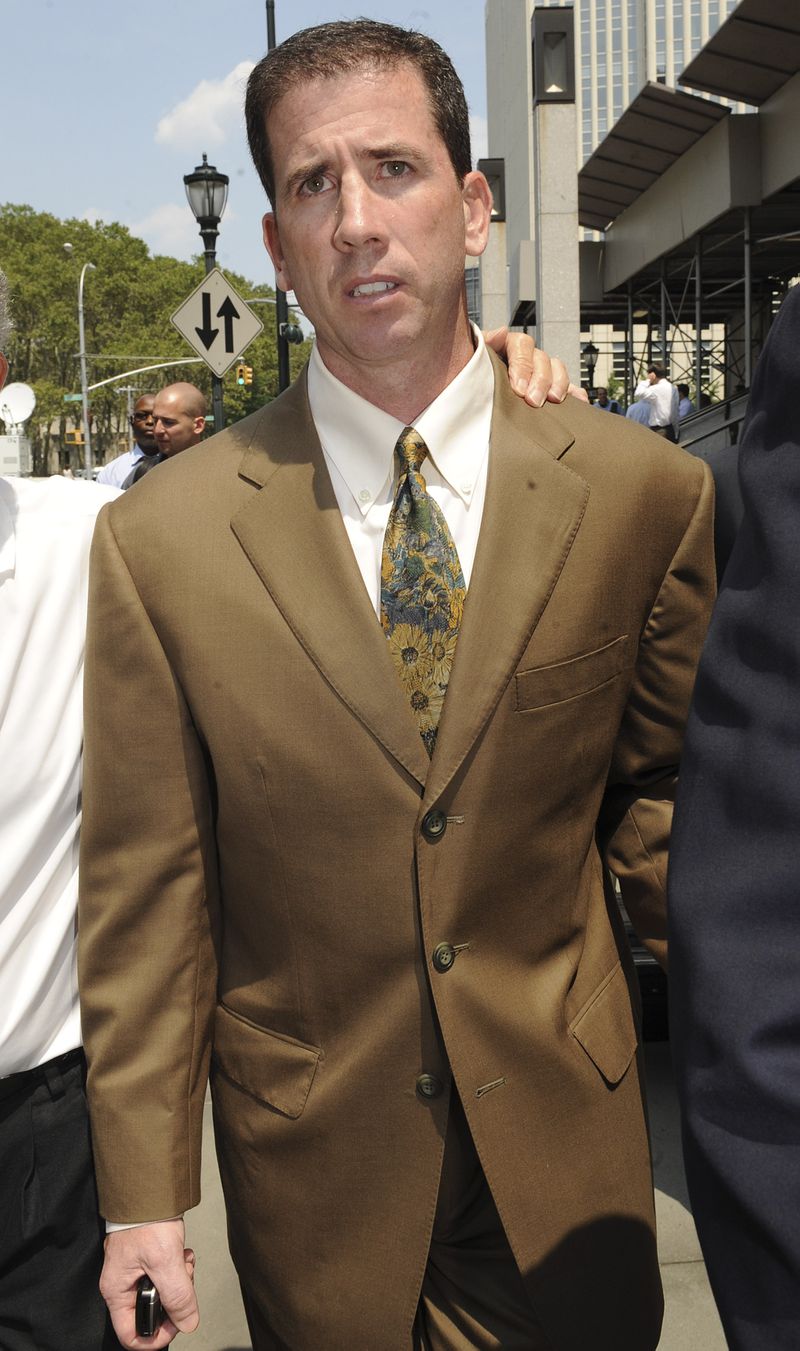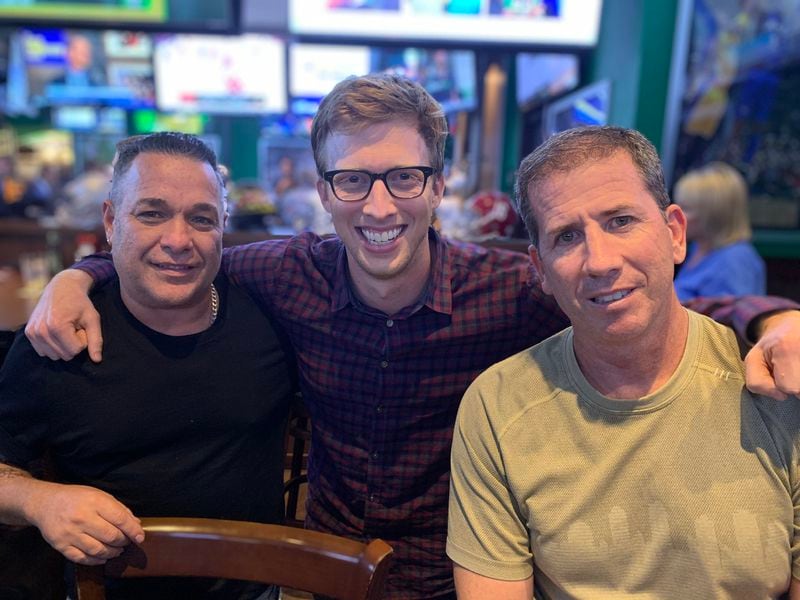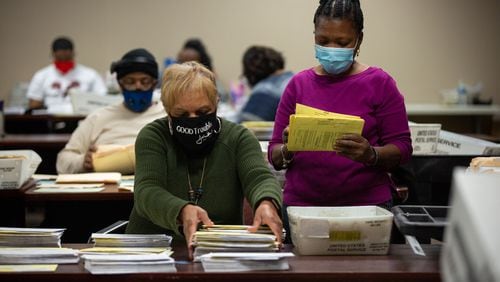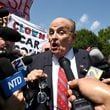The “Whistleblower” podcast begins with a truism about most competitive sporting events: “Referees are supposed to be invisible. You shouldn’t know their names.”
This podcast, created by Atlanta-based Tenderfoot TV, hones in on NBA referee Tim Donaghy, who became headline news, pleading guilty in 2007 to two federal charges of gambling on games he officiated and spending 13 months in prison.
The NBA, roiling from the scandal, castigated him as a lone wolf, a rogue official. Once he was punished and outrage died down, the league and fans moved on.
But journalist Tim Livingston in 2012 was intrigued by Donaghy’s insistence that corruption in the league ran far deeper than just him. Donaghy claimed NBA executives directed referees “to manipulate games” to “boost ticket sales and television ratings,” according to a letter he wrote to Brooklyn’s United States District Court in 2008.
In an interview last month with The Atlanta Journal-Constitution, Livingston said he was impressed by how the NBA managed the crisis. “It was a brilliant PR strategy by the NBA,” he said. “They were able to pin it on a scapegoat, to focus on him being a really, really bad guy. He was a criminal who bet on his own games, a cardinal sin. His story was given no credence.”
Livingston, who is based in Los Angeles, wonders whether the NBA is a fair athletic competition or if the needs to keep viewers engaged creates perverse incentives to shift the playing field in favor of teams with superstars. During the time when Donaghy was a referee, the game included big names like LeBron James, Kobe Bryant and Shaquille O’Neal.
In 2012, Livingston wrote a story about Donaghy attending his first pro basketball game in five years and reiterated some of Donaghy’s allegations. What surprised Livingston is Donaghy contacting him to thank him.
They became pen pals and friends. Donaghy, who lives in Florida, flew to Los Angeles to visit Livingston and began telling him stories that “he wouldn’t tell the press about the other referees, off the record,” he said. “It was mind-blowing.”
Livingston wanted to tell Donaghy’s story but struggled for years to find the proper venue. Tenderfoot finally bit.
‘Whistleblower” is a departure from Tenderfoot’s specialty: pure crime podcasts. Its two most successful have been “Up and Vanished,” which started with the disappearance of Tara Grinstead in Ocilla, Georgia, and an exploration of the Atlanta child murder cases four decades ago in “Atlanta Monster.”
This new podcast series features a crime but no murder or missing person. But it does involve intrigue involving a multi-billion dollar sports league.
“We’re going to analyze specific games, specific characters” in future episodes, Livingston said. “Do these games prove something systematically wrong or are they just badly refereed games? I hope it’s compelling.” He hinted that other referees may be named, though that is not the case in the first two episodes Tenderfoot provided for a preview.
And while Livingston said he became friends with Donaghy, he makes it clear that not everything the self-admitted inveterate gambler says adds up. “I never totally believed his story,” Livingston said. “He would claim he didn’t let the gambling actually impact his refereeing, even when he had tons of money on the line.” Livingston would also say the FBI “cleared” him of fixing games, which Livingston said wasn’t actually the case.
Credit: ASSOCIATED PRESS
Credit: ASSOCIATED PRESS
Another reason the story is appealing is the mob connection. Mafia figures were deeply involved in sports gambling before online gambling sites took over. Donaghy dealt with bookies and friends who were “definitely affiliated with the mob, one degree removed,” Tenderfoot president and co-founder Donald Albright said.
Livingston interviewed former mobster Michael Franzese, who reveals how “easy and undetectable fixing basketball games can be,” Livingston said.
Franzese notes that NBA refs have wide discretion to call fouls, and there are many cases where fouls are purely subjective. A corrupt ref can easily call more fouls for a favored team, providing them more free throws and potentially affecting which side of the betting line a game lands. (Gamblers bet not on whether a team wins or loses but on a “line.” For example, you could bet for the Knicks to beat the Celtics by at least four points. Bookies want 50 percent of bets placed on one side of the line or the other, which helps their own bottom line.)
One of the most amusing touches is the podcast using actor Michael Imperioli from “The Sopranos” to explain some of the nuances of the cheating, a nod to the 2015 film “The Big Short,” where producers had celebrities such as Margot Robbie and Anthony Bourdain explain arcane financial transactions in a way to keep the viewers’ attention.
Livingston admits he’s picking a scab that the NBA top brass would like to forget. And he believes basketball beat writers and organizations like ESPN have had little incentive to go beyond what the NBA officials say because they need to stay in the league’s good graces and maintain access.
Albright said as a small independent production company, Tenderfoot can feel free to dig as much as it wants.
“Tenderfoot has the same goal as I do: find the truth,” Livingston said.
Albright said the podcast, since its debut, is doing better than expected, ranked No. 21 on the Apple podcast chart as of Wednesday, sandwiched between “Office Ladies” and “The Dave Bongino Show.”
With 1,500 reviews on Apple podcasts, the series has received a 3.6 out of 5 stars so far. Albright said that’s a bit on the low side but many of the bad scores came when it was still in previews, and he suspects some might be bots. (”Up and Vanished” has a 4.5 star rating while “Atlanta Monster” is at 4.2.)
One reviewer dubbed Soapskin wrote: “So looking forward to the upcoming episodes. Tough subject and even tougher people to speak to, so thanks for the heavy lifting.” Travelin’ Man’s take: “Ep 1 sets things up so well. Can’t wait until they start naming names.” Seriously111 noted: “I don’t know much about basketball but I was captivated. If you like stories about schemes and cons — this one is pretty crazy.”
Albright said they expect to do 10 episodes but are not yet finished. This gives them an opportunity to pivot or shift things around if circumstances change. They have already interviewed several ex-NBA players and coaches. Former player Rasheed Wallace, who retired in 2013, is featured in the first episode.
“We anticipate more people will come out of the woodwork to comment and tell their stories,” Albright said.
For Livingston, this podcast has been humbling and a little sad. “Basketball has been my favorite sport to watch and play,” he said. “I love this game so much. That’s why it hurts so much this idea that the system is so corrupted. I think that pain will resonate for millions of fans.”
Credit: Tenderfoot TV
Credit: Tenderfoot TV
